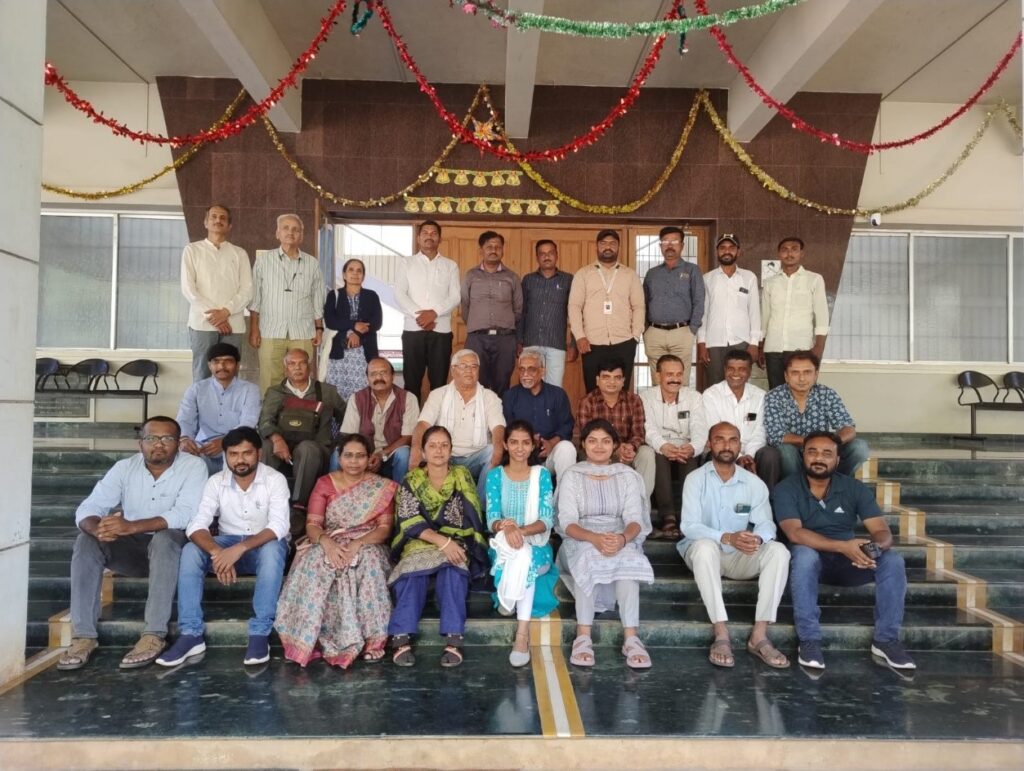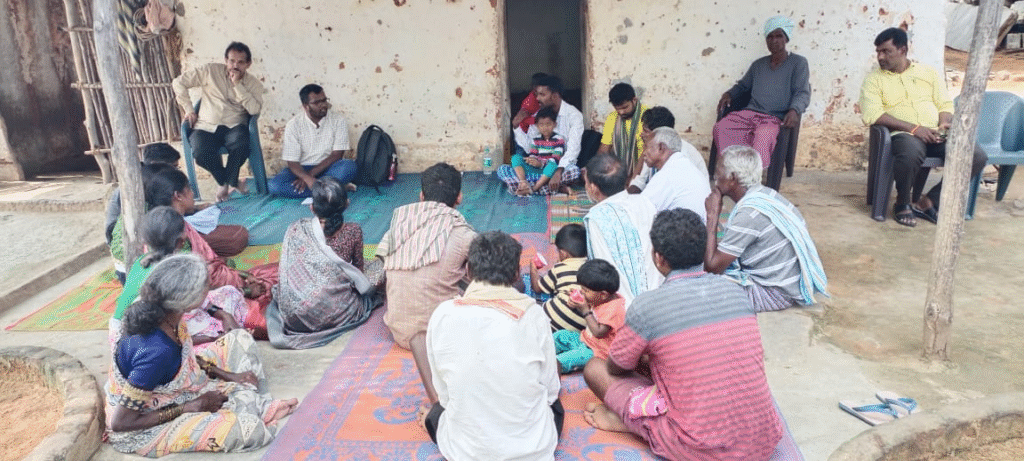Revitalizing Rainfed Agriculture Network – Karnataka- RRAN
The “Akkadi Saalu” training initiative marks a vital component of our engagement with farmers, civil society organizations (CSOs), and government bodies. This report outlines our multifaceted efforts—from building the capacity of CSOs to motivating for progressive initiatives such as the establishment of a Rainfed Agriculture Ministry and the promotion of Secondary Agriculture in Karnataka. Our focus remains steadfast on cultivating an agricultural landscape that is resilient, sustainable, and aligned with the principles of natural farming.
Networking and Collaborative Governance
Our work in the realm of networking and governance included organizing Karnataka’s Annual Convergence Meeting, strengthening partnerships with civil society organizations, and deepening collaborations with the National Center for Natural Farming. Key focus areas included discussions around Block Resource Centers (BRCs) and potential expansion into other states.
Annual Convergence Meeting – Karnataka
On March 18, 2023, RRAN Karnataka, in collaboration with the India Biochar and Bioresources Network, hosted the Annual Convergence Meeting at SCM House, Bengaluru. The event brought together 75 participants, including progressive farmers and representatives from 16 districts across Karnataka. This gathering served as a platform for strategic discussions and collaborative planning aimed at advancing sustainable agriculture.
Capacity Building of Civil Society Organizations
Advancing Primary and Secondary Agriculture
The Government of Karnataka has made a landmark move with the establishment of the Directorate of Secondary Agriculture. This long-contemplated idea focuses on value addition beyond traditional farming. Working closely with a consultant, we contributed recommendations for the effective implementation of this initiative, supporting the larger vision of agricultural innovation and sustainability in the state.
RRAN actively contributed to the crop planning working group, offering valuable insights and enhancing understanding of the proposed frameworks. A significant outcome was the focused exploration of various crop planning systems, particularly the Akkadi Saalu model, which involved mapping and documenting diverse crop varieties across entire panchayats. This work underscores our commitment to sustainable agriculture rooted in traditional knowledge.
Akkadi Saalu Training and Collaborative Efforts
The “Akkadi Saalu” training program was launched as a state-wide initiative to revitalize interest in this indigenous cereal. Spearheaded by RRAN Karnataka, and supported by civil society partners and the India Biochar and Bioresources Network, the initiative included a series of two-day field sessions. These sessions covered key topics such as biochar-based crop residue management, use of bio-inputs for soil health, and natural pest control strategies. These trainings were conducted in partnership with leading CSOs and tailored for the local farming community.
Rainfed Agriculture Ministry
With support from an expert in rural development, we are preparing a formal proposal advocating the creation of a dedicated Rainfed Agriculture Ministry in Karnataka. This proposal will incorporate expert insights to ensure it reflects the unique needs and aspirations of rainfed farmers across the state.
Seed Distribution and Farmer Engagement
As part of our ongoing support to farming communities, diverse seed varieties were distributed—ranging from millets to vegetables such as pumpkin, avarekai, thupada avare, erakai, kathiavare, and various leafy greens. Marginal farmers in Hiranya Gowdnahalli and Mulbagal benefited from these initiatives. Engagements facilitated by the Janapara Foundation in Chintamani included adaptive planning discussions to tackle delayed monsoons.
In collaboration with 500 farmers, we distributed seven vegetable seed varieties, accompanied by proper documentation (including UNISYS forms), reinforcing our commitment to empowering farmers through sustainable and inclusive agricultural practices.
Capturing Farmer Perspectives on Climate Change
In Karnataka, we initiated comprehensive dialogues with farmers to document their perspectives on climate change. These discussions highlighted significant shifts in crop patterns—from traditional staples like paddy and cardamom to more climate-resilient crops such as arecanut. Farmers shared their experiences with challenges like fungal infections, fluctuating markets, and wildlife interference. These insights are vital for shaping informed and adaptive farming strategies.
Rainfall Analysis and Climatic Trends – Sulia Taluk
An extensive analysis of rainfall patterns over the past 45 years in Sulia Taluk revealed relatively stable average rainfall but with irregular seasonal distribution. Farmers noted reduced rainfall intensity during the critical Mrigashira period and a rise in anomalous weather events, such as cloud formations without precipitation in May.
The shift from paddy to arecanut cultivation over three decades illustrates the adaptation necessitated by climate change. Concurrently, environmental degradation due to deforestation and timber extraction has disrupted local ecosystems, reduced humidity, and contributed to rising pest populations.
Encouragingly, farmers in the region are using WhatsApp groups to document rainfall data and share early warnings—forming a grassroots adaptation system that enhances local resilience.
Regional Consultations on Climate Change
On December 19 and 21, regional consultations were held in southern and northern Karnataka, bringing together diverse stakeholders to address the impact of climate change on rural farming communities.
Key findings from surveys by KP Suresh and Phaneesh highlighted the need for climate-adaptive practices. Discussions covered critical issues such as water scarcity, migration, malnutrition, seed storage, and the decline of livestock care.
Suresh motivated for bottom-up planning and historical crop calendars aligned with local weather patterns. The consultations emphasized regular dialogues with farmers, use of the panchayat system for knowledge exchange, and collaboration with organizations like RRAN to support community-led adaptation strategies.
This report reflects the collective journey undertaken by RRAN Karnataka and its partners in fostering resilient, sustainable agriculture. Through trainings, farmer engagement, and data-driven decision-making, we are paving the way for a farming ecosystem rooted in equity, climate sensitivity, and local knowledge.



